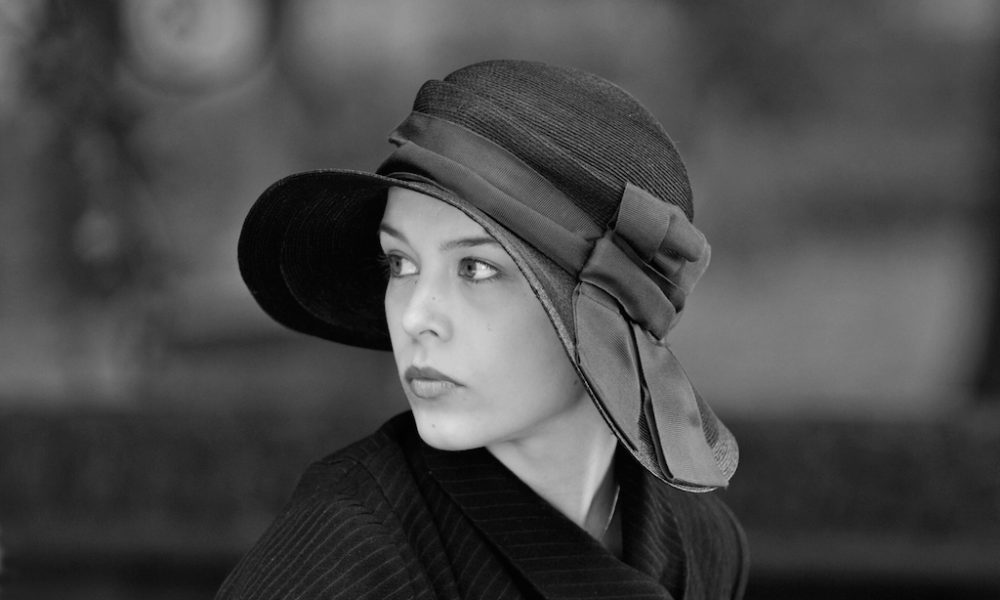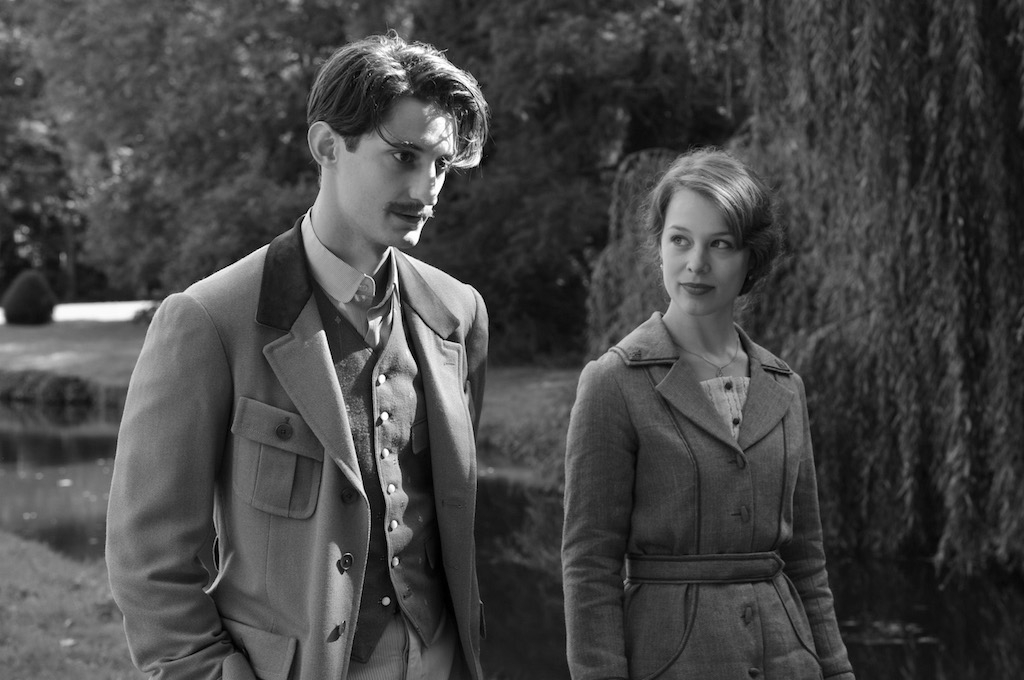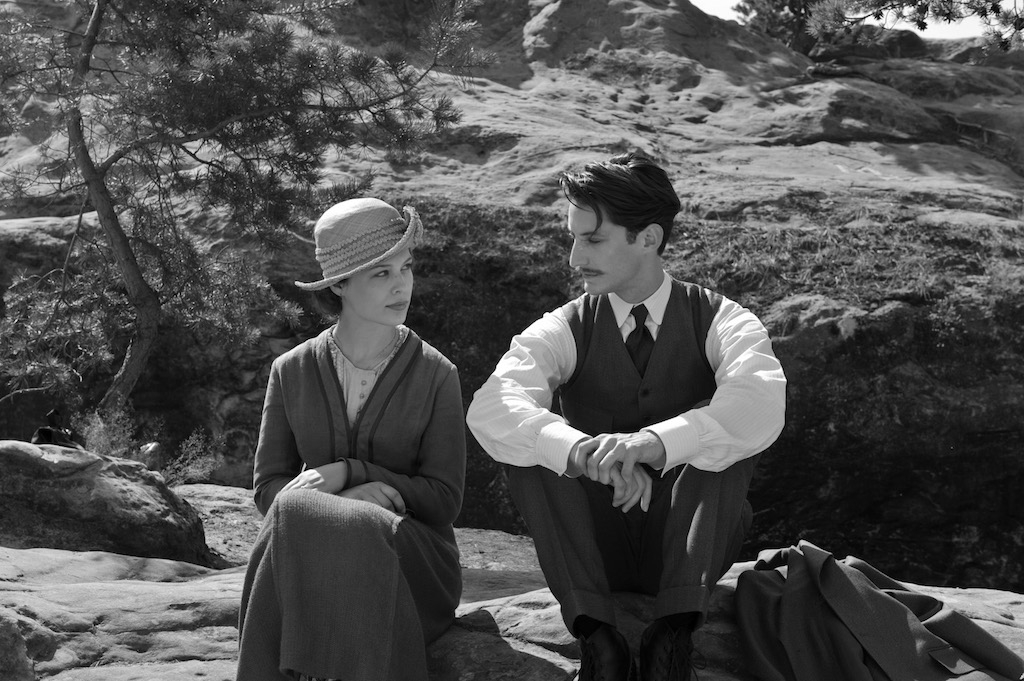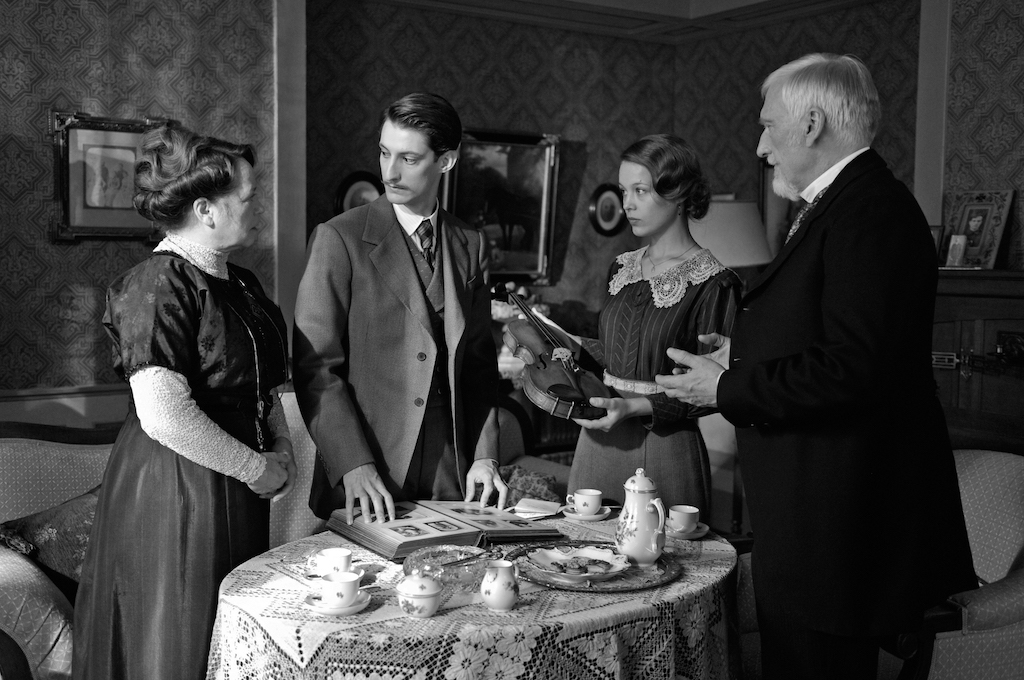Venice Film Festival 2016: Frantz: An interview with Paula Beer

Paula Beer stars in Frantz, the new movie by French auteur François Ozon. In a small German town after World War I, Anna (Beer) mourns daily at the grave of her fiancé Frantz, killed in battle in France. One day a young Frenchman, Adrien (Pierre Niney), also lays flowers at the grave. His presence, so soon after the German defeat, ignites curiosity and passion. The Venice Film Festival jury recognised Paula Beer’s talent giving her the best new actor award.
Tell us about your first meeting with François Ozon.
I was on vacation when the production company contacted me. Three days later, they sent me two scenes and the next day I did the audition. I didn’t know the script and it was my first audition in French, so it was quite unnerving. But as soon as I was with François, everything went fine. We hit it off well. We worked on the two scenes together and he told me about the story, Anna, and the film he wanted to make. Two weeks later, I was in Paris for an audition with Pierre Niney. And a few days after that, François called to tell me I’d be playing Anna.
What was your reaction to the script?
It’s exciting to read a script when you know you’ll be playing a particular character. I was extremely moved by the story and the important themes it touches upon – honesty, love, loss, lies, letting go, determination, the will to live – all subtly rendered, with a palpable feeling of vulnerability and yet a certain lightness seeping into the friendship between Anna and Adrien, adding to its complexity. Anna’s personal growth is amazing. In the beginning she’s a quiet person who, after the death of her fiancé, is kind of adrift. When she meets Adrien, she rediscovers the joie de vivre she’d felt before Frantz died and truly blooms, making the blow delivered when she learns the truth hurt all the more. Then, in the second part of the story, she goes on to develop remarkable strength. I was so happy to play this wonderful role.
How did you prepare to play a character who learns about love and becomes a woman?
Anna evolves a great deal in the story, so it was important for me to understand the different stages she’s going through. How did the war change her life? What was she like before? What is Adrien’s effect on her? What desires is he awakening? It was critical for me to understand her relationships with those around her, the pain she’d felt since Frantz died and, in contrast, her desire to live and love again.
One important stage for Anna begins when Adrien tells her the truth.
Yes, and it’s an unimaginable shock for her. She decides to spare her in-laws that pain and carries the burden of the lie and the heavy responsibility that comes with it all on her own. It’s a crucial moment that raises many questions. Why is she protecting Adrien?
What was it like shooting in France?
It was wonderful. It’s subtly different than on German shoots, it’s hard to explain. It was such a great pleasure. The crew was fantastic! As soon as we began to rehearse, I could tell acting in French was going to be a big challenge for me. I’ve experienced so little in that language, and my body doesn’t react the same way to French words as it does to German words. I worked hard at achieving an emotional connection so I could be free with my acting, even while delivering written lines.
How does François Ozon direct his actors?
I discovered a whole new method of working. François got me very involved early on, during the preparation stage. He would ask my opinion, how I felt about my character and the story. I think that was his way of showing me he trusted me, which made me feel freer as we went into the shoot. I didn’t realise it right away, but I was actually quite unsettled by the amount of freedom he gave me. But we soon found a way to communicate and the work got easier and was very enjoyable.
Did he have you watch any particular films?
He asked us to watch Haneke’s The White Ribbon to get us into the harsh, strict context of the time, and Kazan’s Splendor in the Grass because it’s a very romantic story. The two young lovers are beautiful together. François no doubt hoped to capture something of their youthful fervor, feverish love, powerful desire and the rising tension as the outside world interferes. I think François sought to combine the visions of these two very different films in Frantz.
What was it like working with the other actors?
It was wonderful working with Ernst Stötzner and Marie Gruber, two amazing actors who are also such sweet people. I felt like they were protecting me. Like parents! And it was fascinating to work with Pierre Niney, who can communicate so many things with just the slightest change of expression. Acting with such finesse is truly an art.
Pierre and I acted in tandem, as we did with each of the other actors. We formed a real team, each of us conjuring up real emotions to bring our characters to life. In that sense, I think Frantz is a very honest film. Just like Anna!
Indeed, Anna is the only one who reaches a point where she embraces the truth and confronts her desires. Do you think Adrien, too, is finally ready to accept the truth of their feelings for each other?
I really wonder whether Anna still desires him. I’m not sure. I think she’s grown up too much for Adrien. He sparked her desire, she was moved by him, she fell in love and embarked on a long journey to find him again. In fact, her journey was so long she went past him! Of course when she finds Adrien’s family she’s happy to see him again, but something doesn’t quite gel between them. Adrien is stuck in his situation, he’s not strong enough to get out. And Anna has her life to live.
What does Manet’s painting Le Suicidé mean to you?
In this story, Adrien has killed a part of himself, and that painting evokes his symbolic suicide. I love Manet, and art from that period in general. Le Suicidé is provocative and heavy with meaning, but it also has the sensitivity of the Impressionists. I love that combination.
“It makes me want to live,” says Anna as she gazes at it.
That comment is wide open to interpretation. I think Anna is saying that even when someone or something has died, you can still be like the Phoenix and rise from the ashes. She’d done it herself when she was half-dead and then, thanks to Adrien, found the strength and the will to come back to life and make that trip to France. At the end of the film, Anna has learned so much. She’s completely transformed. She’s a new woman, ready to set out for new horizons.
Laura Denti



























Facebook
Twitter
Instagram
YouTube
RSS